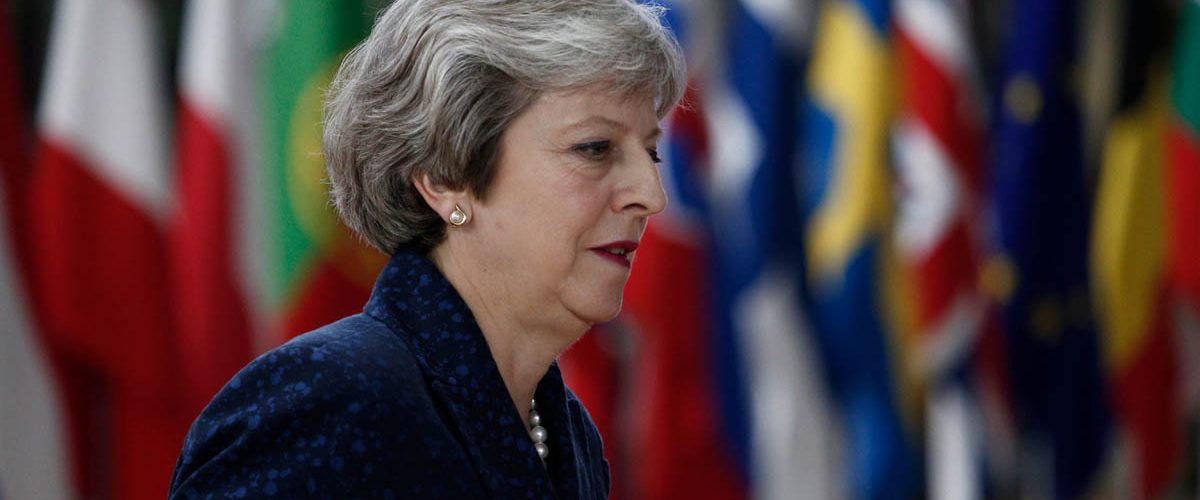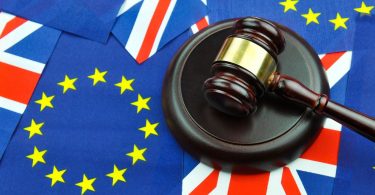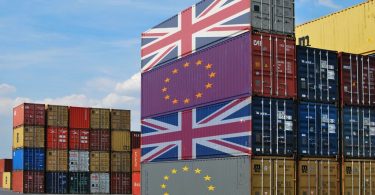David Collins is Professor of International Economic Law at City Law School, University of London
Tw: @davidcollinslaw
Introduction
The UK government’s Chequers White Paper “The Future Relationship Between the United Kingdom and the European Union” relies heavily on a Facilitated Customs Arrangement (FCA) in which the UK will charge importers a common external EU tariff at its borders, exempting those goods which are demonstrably destined to be consumed in the UK. For goods with an indeterminate destination, the higher of the UK or EU tariff will be charged, with a rebate paid to the exporter if the good ends up in the lower tariff jurisdiction, whether that is the UK or the EU. This proposal has already encountered resistance from the EU’s chief negotiator Michel Barnier, who hs said that “The EU cannot and will not delegate the application of its customs policy and rules, VAT and duty collection to a non-member who would not be subject to the EU governance structures.”
But in addition to this problem and the practical difficulties associated with this complicated system, notably tracking products with multiple components to their ultimate destination, there are at least two reasons why this may be illegal under the rules of the World Trade Organization (WTO) of which both the EU, and the UK (after Brexit) are members.
Before examining these potentially fatal illegalities, it is important to point out that the FCA proposal would severely constrain the UK’s capacity to sign FTAs with third states. The FCA contemplates that the UK will be able to form its own FTAs with third parties, setting agreed tariff rates. But it is hard to believe that a third country would agree to offering lower tariffs to UK exports when that third country’s exports to the UK would be subject to a higher EU tariff at the border, subject to the promise that there will be a rebate at a later stage pursuant to a cumbersome tracking procedure. Many foreign traders may not understand this system or be prepared to suffer the inconvenience of following through with it, leading them to pay EU tariffs anyway (precluding one of the chief benefits of an FTA), or worse not bother to export to the UK/EU at all.
The practical effect of this is that the UK would not actually be able to offer low or zero tariffs to imported goods to its future FTA partners in order to secure reciprocal benefits, rendering the UK Prime Minister’s promise of an independent trade policy illusory. US President Donald Trump’s recent remarks that a unified customs arrangement with the EU would obviate a US-UK FTA illustrate this conundrum. This is notwithstanding the fact that remaining in an EU customs area subject to the EU rulebook on non-tariff barriers, also part of the White Paper, would effectively result to a carve out of goods from future FTAs. Such agreements would need to be services only.
Problems with WTO Law – National Treatment
There is a risk that the FCA procedure could breach the National Treatment obligation of GATT Article III.1 because it imposes burdensome tracking obligations on imported goods which are not imposed on equivalent domestic products. Article III.1 prohibits “laws, regulations and requirements affecting the internal sale, offering for sale, purchase, transportation, distribution or use of products… so as to afford protection to domestic production.” Article III.4 proceeds to state: “The products of the territory of any contracting party imported into the territory of any other contracting party shall be accorded treatment no less favourable than that accorded to like products of national origin in respect of all laws, regulations and requirements affecting their internal sale, offering for sale, purchase, transportation, distribution or use.” This latter paragraph, which is understood to have a very wide scope, goes on to state that this provision does not apply to “the application of differential internal transportation charges which are based exclusively on the economic operation of the means of transport and not on the nationality of the product.”
But the FCA specifically contemplates the nationality of the product for the application of its differential rules. Under the terms of the White Paper, in order to qualify for a lower tariff at the point of entry, the exporter must demonstrate that the good is destined to end up in the relevant jurisdiction. Indeed, no less than 96 per cent of all goods are expected to be handled this way. It should be expected that this “robust” verification process for foreign goods will be quite time consuming and expensive. Most importantly, it will not be required of equivalent domestic producers, giving them a distortive advantage relative to their competitors. This appears to be de jure discrimination prohibited by the GATT and actionable through the WTO dispute settlement system. A complainant, in this case an exporter from a third country, need only show that the tracking verification procedure alters the competitive landscape in favour of the domestic product. While it could be argued that difference in the product’s ultimate destination would render the products non-like for the purposes of disapplying the obligation of National Treatment under Article III.4 because they are competing for different markets (consumers in the UK and the EU), the products would be otherwise identical in terms of their physical properties, end uses and consumer tastes and habits.
It is important to note that formally different treatment is not sufficient to find a violation of National Treatment – the Appellate Body of the WTO (in Korea-Beef) has clarified there must be an adverse effect on the conditions of competition for imports. The adverse effect against imports from third countries may possibly be mitigated by the payment of the rebate (indeed it would seem that is the very purpose of the rebate) although it would be for the respondent member (the UK) to demonstrate this, once the exporting state were to show (as it most likely could) that its products were subject to less favourable treatment through the FCA’s unwieldly verification tracking process.
Problems with WTO Law – Export Subsidies
Some aspects of the FCA proposal may transgress WTO rules on subsidies. Specifically, the rebates paid to exporters for goods destined for a lower-tariff jurisdiction (whether that is the UK or the EU) may be construed as prohibited export subsidies under the WTO Agreement on Subsidies and Countervailing Measures (SCM). Regardless of the fact that such products of indeterminate destination may comprise only a small portion of the UK’s total imports (again the White Paper estimates this to be about 4 per cent, most of which will be intermediate products), the rebate system is a key component of the overall regime.
The scenario under which the rebate could operate as an illegal subsidy is where the UK tariff on a foreign imported product is higher than that of the EU and the good ends up in the EU rather than in the UK. While this situation may be unlikely given that the UK intends to pursue a lower tariff regime than that of the EU going forward, there may be some instances where UK tariffs will be higher. Under the FCA system, having been shipped through a UK point of entry and consumed in the EU, the exporter in question will be entitled to a rebate representing the difference between the lower EU and higher UK tariff paid at the border.
The rebate payment would probably fit within the definition of a subsidy under Article 1 i) of the SCM: as “a direct transfer of funds” from the government leading to a “benefit conferred,” namely the money itself. The rebate would appear further to satisfy the requirements of a prohibited export subsidy under Article 3. Such subsidies are granted to enterprises contingent on their export performance and are illegal. Under the FCA rebate system the money would be paid to the exporting enterprise on condition that the good is sent on to the EU rather than stay in the UK. In the case of export subsidies, there is no requirement to demonstrate a measure’s specificity – meaning that the subsidy is granted to a designated enterprise or group of enterprises. The subsidy is deemed to be specific because it is contingent on export under Article 2.3.
In ascertaining whether the rebate is indeed an export subsidy, WTO caselaw (EC- Aircraft) suggests that panels must consider the design and structure of the measure and relevant factual circumstances, much of which remains to be seen for the FCA. This may further require a consideration of a comparison between the ratio of anticipated export and domestic sales of the subsidized product because of the rebate and, on the other hand, the situation that would exist in its absence. The question would therefore be: to what extent would the availability of the rebate encourage exporters to ship products to the EU which they would otherwise not have done, meaning leave them in the UK or not ship them to UK/EU at all. Such counterfactuals may possibly be established by reference to existing patterns of trade pre-Brexit. The WTO Appellate Body (in EC-Aircraft) has clarified that in establishing the effects of the subsidy it is not only the actual effects (change in export patterns) but anticipated ones which matter. In this sense, even the risk that more of certain goods would be shipped onward to the EU than would have happened “normally” may be enough to find a violation of the SCM.
It is important to emphasize the logic of the WTO’s prohibition on export subsidies when considering the lawfulness of the FCA. Paying a private firm to export enables governments to support (domestic) suppliers operating in foreign markets, creating distortions which can harm equivalent suppliers in the importing state. It is further necessary to recognize that the SCM was designed to prevent assistance to domestic suppliers, which would not be the case with the FCA arrangement, as it would support suppliers from third states using the UK as a conduit to the EU. But the distortion would remain, arguably harming equivalent suppliers within the EU. The EU might rightly complain using the WTO dispute settlement system that the UK’s rebate mechanism is encouraging harmful market distortions. In this regard, the SCM does not require any demonstration of actual adverse effect to exporters – as long as the components of the subsidy are proven, it qualifies as prohibited and can engage remedies under the WTO system, meaning the prompt removal of the subsidy.
Conclusions
To conclude, there are at least two aspects of the FCA which raise serious issues of WTO compliance for the UK and the EU: discrimination based on national origin and export subsidies. This means that if the UK and the EU were to agree this system and bring it into operation, there is a risk that it would be found to be in breach of WTO rules and then have to be abandoned or at least substantially modified, although it is difficult to see what modifications could successfully address these potential illegalities without destroying the whole purpose of the FCA. Additional WTO compliance problems relating to non-tariff barriers and conformity assessment procedures and rules of origin verifications may also be present in the FCA, depending on details of its operation which are not easy to deduce from the White Paper, but have not been discussed here.







